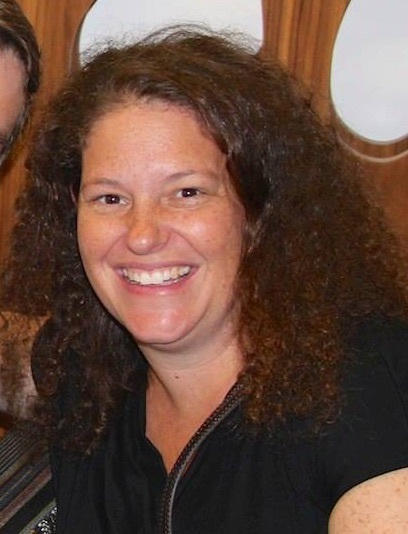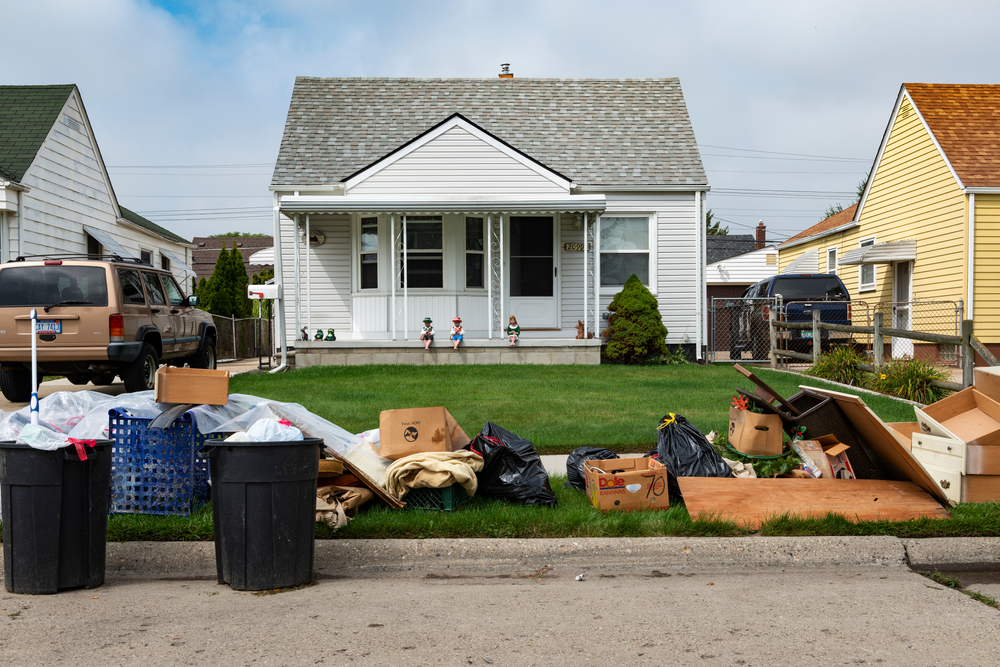For the last few years, Wisconsin attorney Carousel Bayrd has worked on about 250 eviction cases per year. Bayrd works for the nonprofit law firm Community Justice Inc. in Madison, which serves low-income individuals and families.
Single moms make up a big portion of her client base, and one thing she often hears from them is how the sudden loss of childcare started the spiral that led to eviction — or the threat of it.

Courtesy of Carousel Bayrd
Carousel Bayrd
“A lot of them talk about how they were paying rent, everything was fine, and then they lost childcare,” Bayrd said. With no one to watch their kids, single parents are sometimes forced to quit their jobs and lose their incomes, or they miss so much work they end up fired. The alternatives are to quickly find new childcare options they may not consider safe or best for their children. “I find an overwhelming impact of eviction is to force parents, and single mothers in particular, to find substandard childcare for their children.”
Children are the “invisible” victims of evictions nationally, said Eviction Lab researcher Nick Graetz. A recent Eviction Lab study found that 2.9 million children are impacted by an eviction filing every year. They represent nearly 40% of individuals facing the prospect of being forced out of their homes due to non-payment of rent or other factors. In Dane County, Wisconsin, where Bayrd works, more than a third of eviction filings are against single parents, according to data from the Eviction Diversion and Defense Partnership.
For kids, eviction can have repercussions lasting well into adulthood, from elevated risk of developmental delay to increased school absences and social isolation.
The Eviction Lab study was the first large-scale study to put a number on how many kids are impacted by eviction filings. Co-author, Carl Gershenson, described the results as “shocking.”
“We previously did not have a good estimate of just how high the risk was of having children in the household,” Gershenson said. “We found that in your life course, you’re most likely to be evicted when you are a child and, in fact, you’re maybe at the highest risk when you’re between the ages of 0 and 5.”
The study also found that Black Americans experienced a greater risk of eviction than other racial groups, with roughly one in five Black renters facing the threat of eviction every year and one in 10 being evicted. The data combined suggests that young Black children face the highest eviction threat of all.
A 2021 study published in the medical journal JAMA Pediatrics found that eviction can even impact children before they are born. In the study of nearly 90,000 births in Georgia — one of three states the Eviction Lab study found that threatens the highest number of children with eviction annually — researchers found eviction during pregnancy was associated with lower birth weight and higher rates of prematurity.
“I think we’ve overused words like ‘resilient’ — much to the detriment of children.”
While the study could not prove that eviction alone caused these outcomes, the association was strong enough that researchers concluded, “Policies to protect tenants from eviction might improve child health.”
Dr. Diana Cutts, a pediatrician and principal investigator for Children’s HealthWatch, a child health and development research organization, co-authored another study last year that looks at the impact of evictions on children ages 0 to 4. The results showed that children who had been evicted faced greater risks of being in fair or poor health, developmental delays and being admitted to the hospital. The study also found that the adults in their lives were more likely to be depressed and in poor health, too, which can affect children.
Research on adverse childhood experiences shows that traumatic events like the sudden loss of housing can affect people throughout their lives, from worse mental health outcomes to a greater likelihood of cancer and drug abuse.
“I think we’ve overused words like ‘resilient’ — much to the detriment of children,” Cutts said. “Young children, including infants, experience adversity that really impacts them in a very persistent way.”
For school-age kids, even the threat of eviction can destabilize their much-needed sense of community. Bayrd, the Wisconsin lawyer, remembers talking to a former client, a single mom with multiple kids, about their teenagers who were the same age. Bayrd’s daughter was playing volleyball and practicing with the team after school, while her client’s son had to go home immediately after class to watch the younger children while his mother worked a second shift.
Most of Bayrd’s clients don’t end up getting evicted, but for those families who do, one of their biggest concerns is whether the kids will have to change schools. Research in Atlanta and Detroit points to eviction and housing instability leading to a greater likelihood that students will suddenly change schools or stop showing up altogether.
Bayrd sees the consequences of this in other work she does representing young people in civil and criminal court cases.
“In a lot of the civil cases I’ve had, disproportionately the youth that are in trouble are absent from school,” she said. “The youth facing expulsions do not feel at home in their schools. Maybe it’s because they’ve missed so many classes that they can’t really participate. Maybe it’s that they’ve switched schools so many times, so they don’t have a social network, they don’t have friends, they don’t have connections.”
[Related: Can Cleveland reduce the harm eviction does to Black families?]
There are few federal policies to protect families with children facing eviction. The Fair Housing Act protects renters from discrimination based on things like race, sex and the presence of children. But proving a landlord is engaging in discrimination against a renter with children through eviction proceedings is “extremely hard,” Gershenson said.
Most eviction policy is set at the local or state level. During the COVID-19 pandemic, some states put a temporary moratorium on evictions. Some states have now extended those policies. Minnesota, for example, extended the number of days a landlord needs to give tenants notice before eviction and guaranteed tenants’ right to legal representation, among other legislative changes.
Rachael Sterling, a housing attorney for the Bloomington, Minnesota-based nonprofit HOME Line, praised the new laws but said state policy should go further.
“Having more resources for tenants to not get to the place of an eviction would do more for Minnesota families and renters in general than anything else,” Sterling said. “It would also help landlords in the long run because if you’re a landlord, that income is what you have. If your income goes away, then you’ve got your own bills to pay.”
Alecia Leonard, vice president of advantage services for the St. Paul, Minnesota-based affordable housing nonprofit CommonBond Communities, said intervening with residents earlier goes a long way toward preventing eviction. That could be anything from helping someone find a new job quickly to mediating conflicts among neighbors.
“The intense stress that comes with the threat of eviction absolutely has an impact on everyone in the household. We think sometimes that maybe kids don’t understand what’s going on or aren’t fully aware, but even the youngest of kids can pick up on that sort of burden,” she said.
***
Colleen Connolly is a Minneapolis- and Lima, Peru-based journalist who covers education and child welfare, among other topics.




























